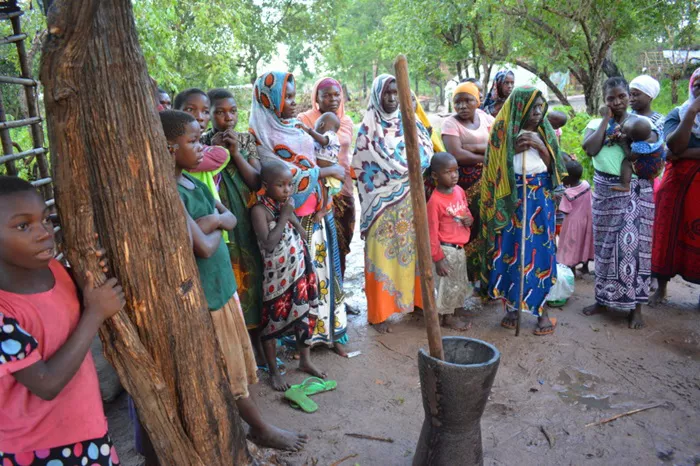Tanzania’s High-Profile Suicides Reveal Growing Mental Health Crisis
Recent suicides of prominent religious figures in Tanzania have drawn significant attention to the nation’s escalating mental health crisis, mirroring a broader struggle across Africa.
On May 16, 2024, Archbishop Joseph Bundala of the Methodist Church was discovered deceased in his church building in Dodoma Region. Eyewitnesses reported that the esteemed leader had taken his own life by hanging, leaving the community in shock and questioning the underlying causes of his decision.
Just days later, on May 21, another tragedy unfolded with the death of 25-year-old Roman Catholic seminarian Rogassion Masawe, who was found hanged in his seminary room. Media reports suggest that Masawe’s suicide may have been linked to his inability to advance in his religious training.
These events have starkly highlighted Tanzania’s mental health challenges. Tito Kusaga, Archbishop Bundala’s brother, expressed disbelief at the possibility that financial pressures could have led to such a drastic action. The lack of help sought by Bundala reflects a broader issue of inadequate support for those facing emotional distress in the region.
Africa’s Mental Health Crisis
The African continent faces the highest suicide rate globally, according to the World Health Organization (WHO). Every 40 seconds, someone dies by suicide worldwide, totaling approximately 700,000 deaths annually. In Africa, the suicide rate stands at 11 per 100,000 people, compared to the global average of nine. Particularly concerning is the rate among African men, who experience 18 suicides per 100,000—significantly higher than the global male average of 12.2. These figures may be underrepresented due to insufficient data.
About 29 million people in Africa suffer from depression, with 17 of the 24 least happy countries globally located on the continent. However, mental health services are severely underfunded. In 2020, Africa spent less than $1 per capita on mental health, while Europe allocated $46.49. This underinvestment correlates with higher suicide rates and poorer mental health outcomes.
Africa has only one mental health worker per 100,000 people, compared to a global average of nine. The continent suffers from a critical shortage of psychiatrists, hospital beds, and outpatient facilities, resulting in a low annual rate of mental health outpatient visits—14 per 100,000 people compared to the global rate of 1,051.
Tanzania’s Mental Health Landscape
Tanzania’s mental health services reflect the continent’s broader issues. The country has just 1.31 mental health workers per 100,000 people, including 38 psychiatrists, 495 mental health nurses, 17 psychologists, and 29 social workers serving a population of 65.5 million.
The nation relies on Mirembe National Mental Health Hospital, the only facility of its kind in Tanzania, which provides 600 beds in the capital and an additional 300 in satellite locations. The hospital faces overcrowding and limited resources, with patients averaging six-week stays, often facing relapses due to long distances, financial constraints, and medication side effects.
Mental health practices in Tanzanian prisons, such as at Isanga Correctional Facility, involve controversial measures like chaining aggressive patients to beds. Dosanto Mlaponi, head of forensic psychiatry at Isanga, defends these practices as necessary for safety, though the facility faces significant challenges.
Patient Discharge and Socioeconomic Impacts
Mirembe Hospital also contends with a troubling issue: some patients remain in the hospital post-recovery due to a lack of family support. Dr. Paul Lawala, the hospital’s director, notes that families often abandon patients after treatment, leaving them in a precarious situation.
Research indicates a strong correlation between socioeconomic crises, such as unemployment and domestic abuse, and suicide rates. Dr. Michelle Chapa, founder of a mental health foundation in Dar es Salaam, attributes rising suicides to clinical depression exacerbated by poverty, unemployment, and cultural stigma. She emphasizes the need for better mental health services and integration with primary healthcare.
Innovative Solutions and Future Directions
The Tanzanian Health Ministry is exploring innovative solutions, including using mobile technology to connect patients with health workers. The “Using Mobile Phones in Improving Mental Health Services Delivery in Tanzania: A Feasibility Study” examines how technology can bridge gaps in mental health care, potentially reducing the need for physical hospital visits and improving access to support.
The Friendship Bench project, originating in Zimbabwe, offers a promising model by employing trained lay health workers to provide problem-solving therapy. This approach has expanded to other regions and countries, demonstrating adaptability and potential for global application.
In Zanzibar, local initiatives like Zanzibar Mental Health Shamba (ZAMHS) are making strides in mental health care despite resource limitations. Amina Hassan, a coordinator at the Friendship Bench of Zanzibar, underscores the importance of ongoing support and policy development to address mental health needs effectively.
Conclusion
Tanzania’s recent tragedies underscore the urgent need for comprehensive mental health reforms across Africa. Addressing this crisis requires increased funding, improved infrastructure, and innovative solutions to provide better care and support for those in need. Enhanced data collection, policy advocacy, and community-based initiatives are crucial to improving mental health outcomes and preventing future tragedies.
[inline_related_posts title=”You Might Be Interested In” title_align=”left” style=”list” number=”6″ align=”none” ids=”11145,11141,11137″ by=”categories” orderby=”rand” order=”DESC” hide_thumb=”no” thumb_right=”no” views=”no” date=”yes” grid_columns=”2″ post_type=”” tax=””]

































